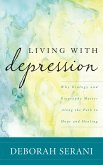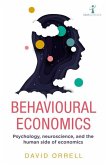As the varying models of CBT continue to grow and diversify, Cognitive and Behavioural Therapies for Depression provides an overview and wider understanding of the theoretical and clinical origins of this form of therapy. It guides the reader through practical application of cognitive and behavioural therapies treatment protocols for depression in a practical but theoretically informed way. The book describes the spectrum of theories and concomitant clinical interventions that are commonly described as CBT for depression. It differentiates and describes a number of treatment protocols for acute and chronic depression which draw on behavioural and cognitive theories to inform the treatment rationale and the clinical interventions that stem from these theories. This includes a review of the evidence base for these protocols and a discussion of newly emerging treatments in the field. Case studies, examples of record sheets and formulation flowcharts are used throughout the book. Designed as a core text for all undergraduate and postgraduate courses in CBT, in particular 'Fundamentals of CBT' and 'CBT for Depression' modules, this book is also suitable as core reading for those taking the Postgraduate Diploma for High-intensity psychological interventions (IAPT). It is also intended for clinicians, mental health workers, psychiatrists and psychologists with an interest in CBT.








